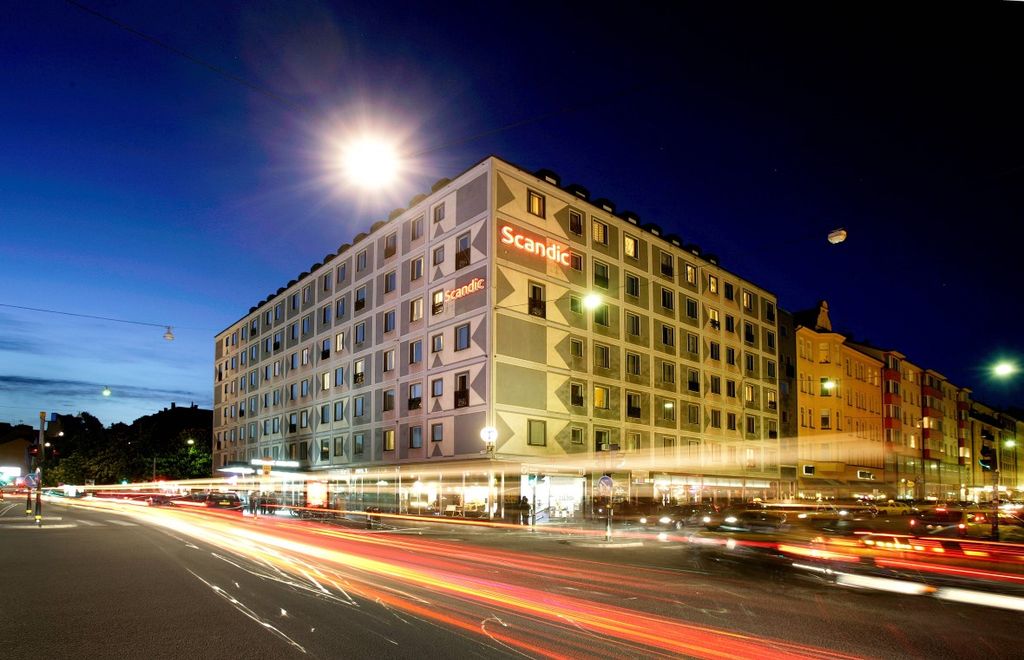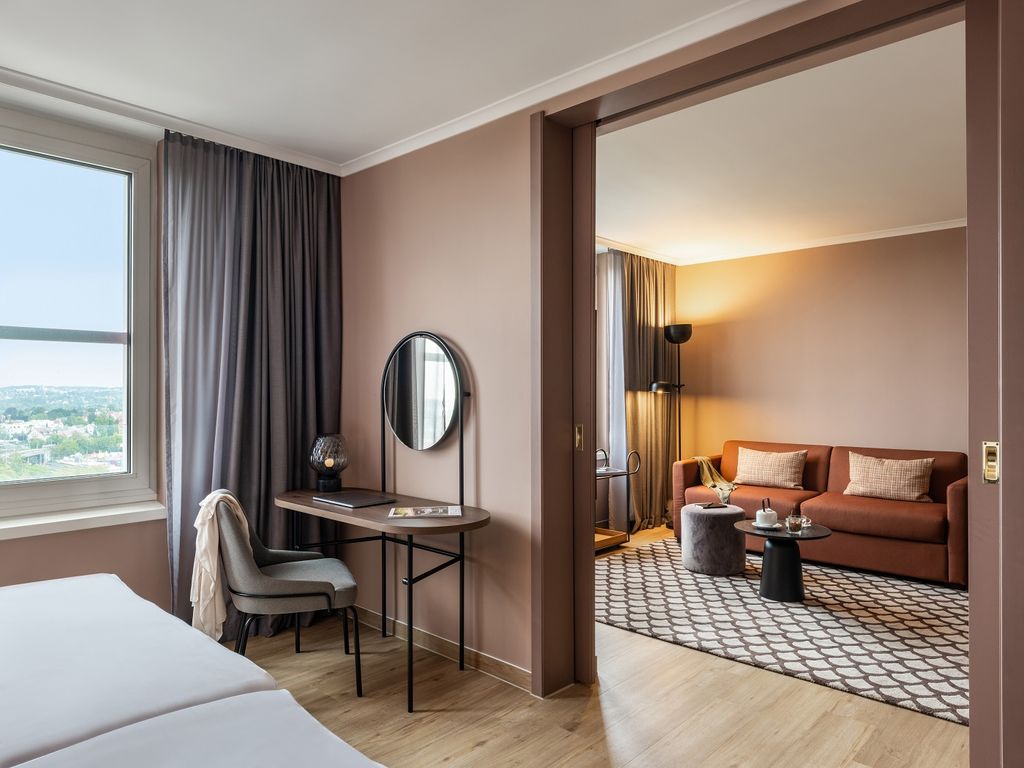Energy
At a hotel, activities take place more or less around the clock. Pandox’s properties and operations therefore require a continuous supply of energy. Energy is needed for heating, ventilation and cooling, for example, as well as for lighting and kitchen equipment.
Environment and climate in Leases
In leases with external hotel operators, the tenant is responsible for signing the electricity agreements. Pandox can have some influence in dialogue with the operators, such as when signing green supplementary agreements. In 2023 the share of renewable energy was 40 (39) per cent of total energy use in leases.
Pandox has continued to hold proactive dialogues with its tenants. Upcoming legal requirements,
energy crisis and new knowledge about climate issues are driving demand for new solutions
and have resulted in the topic being placed higher on the agenda.
During the year, energy audits were carried out in four hotel properties in England that had a comparatively poor energy rating. This resulted in an energy transition action plan which includes upgrading to LED lighting, phasing out gas and installing heat pumps and solar panels. This will lead to better energy efficiency resulting in a higher energy rating and lower operating costs. Energy audits are also ongoing in three other hotel properties in Germany

Environment and climate in Own operations
Pandox aims to increase the use of renewable energy sources, particularly in Own operations where the company has a direct opportunity to make an impact. In 2023, the share of renewable energy was 41 (50) per cent of total energy use in Own operations. The renewable energy sources consisted of electricity from wind and hydro power and from Pandox's own solar cells. Pandox's ambition is to install solar panels in at least 50 per cent of its hotels by 2025. Today, five of the hotels have solar panels and two have solar panels for heat production. In total, Pandox produced around 1,912 (1,575) MWh of its own electricity in 2023.
Solar panels and own electricity production
Achieving the climate goals requires a change in behaviour. Pandox has therefore implemented a green module in the system where hotel managers monitor revenue and guest nights on a daily basis. In the module, the sustainability goals are broken down into six categories that have the greatest impact on Pandox's own operations: energy, water, waste, food waste, towels & linen and chemicals.
Activities deemed to have the greatest impact have been linked to each category. The categories are weighted according to materiality in an aggregated index between 1 and 10 where the ambition is at least level 8 by 2024. On the last December 2023, the average was 8.4.
In this way, general managers can clearly follow up on their goals and any deviations, making it easy to address which departments and employees are responsible for various activities. The hotel managers are also assisted by Pandox's sustainability manager in Own Operations and a sustainability coach per hotel for support. 25 per cent of the hotel managers' bonuses are linked to the index. This way of working has already shown that a clear focus and follow-up bring immediate results.

